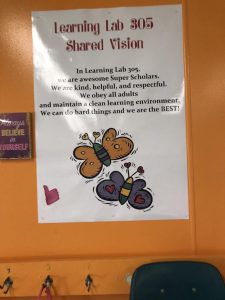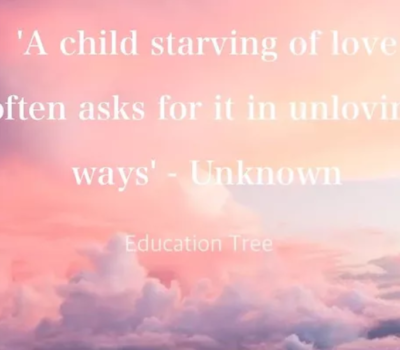


Our team sorts through all blog submissions to place them in the categories they fit the most - meaning it's never been simpler to gain advice and new knowledge for topics most important for you. This is why we have created this straight-forward guide to help you navigate our system.


And there you have it! Now your collection of blogs are catered to your chosen topics and are ready for you to explore. Plus, if you frequently return to the same categories you can bookmark your current URL and we will save your choices on return. Happy Reading!
A substantial percentage of educators are within the menopausal age range but the subject is still taboo.
Donna Berkert attended a WomenEd conference challenging this.

This weekend (Jan 2022) I attended a virtual conference held by @WomenEd on Twitter. It focused on leadership and the menopause. I wasn’t sure what to expect. The menopause certainly feels like the buzz word of the moment and since Davina McCall’s programme on Channel 4: Sex, Myths and The Menopause in May 2021 was aired, it has become the focus of many large organisations.
The zoom conference that I attended was therefore welcomed as an insight into how this incredibly important change in a woman’s life could be addressed in schools. With a substantial percentage of our teaching workforce within the age range of The Menopause or The Perimenopause [period of up to ten years leading up to menopause], then this would seem a well overdue discussion to have.
What ensued was an amazingly informative day. The wide range of speakers were eloquent and knowledgeable. Dr Olivia Hum outlined the medical changes, symptoms and treatments available, Jess Rad [@thewomen_hood] emphasised the need to support each other and to really listen to what our bodies are saying, Nicky Bright [@nickybright – menopause, mayhem & teens] spoke about the many teachers and mothers who juggle their own changing hormones with girls also going through puberty, Mary Morris [@Marymorris72] talked about embedding menopause within the 2010 equality act and informed listeners about the many changes they have made, and continue to make, in her school to allow staff space to discuss and deal with menopause related issues. There was discussion about the need to include information about menopause within lessons at school to ensure that children grow up aware of the hormonal changes that can occur at certain stages of life, not only so that students have knowledge to recognise it for themselves when it happens, but so that they could equally recognise, understand, and support their mum’s or other female members of their families and extended families that might be struggling with symptoms.
Patrick Ottley-O’Connor [@ottley-oconnor] spoke passionately about how he ensures funding to support staff and felt that colleagues – especially male colleagues – should help by ‘calling out’ derogatory comments with regard to what can be an incredibly difficult time for some women. And there were many more speakers all supporting the incredible need to support women through this change rather than force them to struggle, and in some cases feel disempowered, to fulfil their role.
Nobody, I’m sure, would question the need to have frank and open discussions about how to support their staff through the many debilitating symptoms that some women have to face. And yet, it remains a fairly taboo subject.
I, for one, will certainly be taking some of the excellent information back to my own SLT for consideration within our own policies.
The question is: What has taken us all so long?

The author

Read more

Read more

Read more

Read more

Read more

Read more

Read more

Read more


Are you looking for solutions? Let us help fund them! Nexus Education is a community of over 11,000 schools that come together to share best practise, ideas and CPD via online channels and free to attend events. Nexus also offers funding to all school groups in the UK via nexus-education.com


Established in 2011, One Education is a company at the heart of the education world, supporting over 600 schools and academies. Our unique appeal as a provider is in the breadth and synergy of the services we offer, supporting school leaders, teachers and support staff to achieve the best possible outcomes for their pupils and staff.

School Space is a social enterprise that has empowered schools for over 12 years through their profitable and hassle-free lettings services. So far, they’ve generated over £5 million in revenue for education, helping to connect over 200 schools with their local communities.


Unify is an online sales and marketing tool that allows users to create tailored personalised documents in moments.


There’s nothing special about the energy we sell. In fact, it’s exactly the same energy as all our competitors provide. But there is something special about the way we do it. Where others complicate the process, we simplify it. Where others confuse customers with hidden terms, we’re an open book. And where others do all they can to make as much money from their customers as possible, we do all we can to make as little. Everything we do, we do it differently. Our customers are a privilege. One we’ll never take advantage of.


Securus provide market-leading monitoring solutions to safeguard students on ALL devices both online and offline. We also offer a full monitoring service, where we carry out the monitoring on behalf of the school, freeing up valuable staff resources. From the smallest school to large MAT groups, Securus offers safeguarding protection for all!


Bodet Time offers dedicated solutions to education through lockdown alerts, class change systems, PA and synchronised clock systems. Improving time efficiency of the working and school day; ensuring safety through lockdown alerts; increasing communication with customised broadcast alerts.


Robotical makes Marty the Robot - a walking, dancing coding robot that makes programming fun and engaging for learners as young as 5. Our robots come with a full Learning Platform that has complete teaching resources, to make lesson planning a breeze.